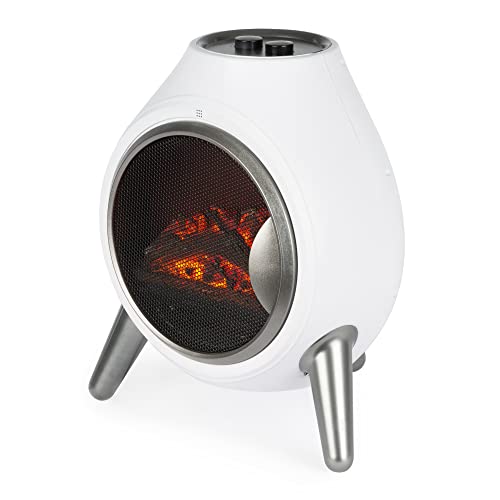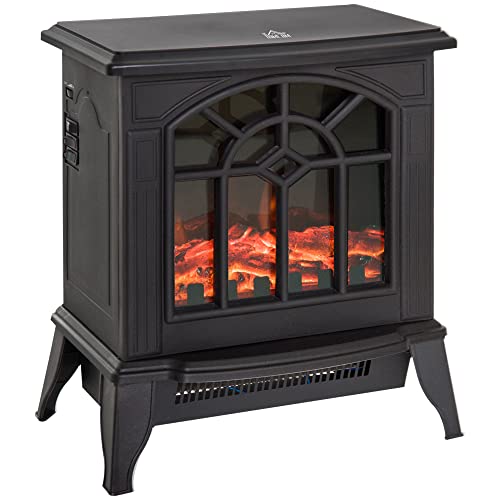Blog entry by Gaston Stodart
Choosing an Electric free standing led electric fires Patio Heater
Patio heaters can make outdoor gatherings more enjoyable as the weather gets colder. The best patio heater will depend on the space you have and your budget. You should consider whether you prefer using gas or electricity.
This stylish patio heater in cylinder shape can provide enough heat for a small space. It comes with a safety auto-shutoff and includes straps to hold propane tanks. Its short cord will require many users to purchase an extension cord rated for outdoor usage.
Easy to install
There are many different types of electric fireplace freestanding patio heaters, each with their own style and features. The best choice will depend on the kind of space you're hoping to heat and your personal preferences. Certain models have adjustable heating settings whereas others have timers which will shut down the unit automatically. Many models come with an remote control that makes for easy operation. To ensure the safety of your guests you should also select one with essential security features like automatic shut-off or tip-over protection.
One of the most simple options is a propane heater which doesn't require any installation or assembly and can be easily moved to the location you wish to heat. The disadvantage is that it needs the use of a 20lb propane tank which can be expensive. Additionally, propane heaters produce a lot of heat in a circular radius, so they're not the best choice for large areas.
Electric heaters are an alternative. They can be wall-mounted or cheap free standing fireplace electric free standing electric fires electric fires (please click the following post)-standing. These heaters come in a variety of styles and colors, and can be customized to complement your decor. They're also quiet and energy efficient and won't bother your guests. They're also odorless and they require minimal maintenance. However, be aware that they're not as efficient as a gas-powered outdoor heater.
If you plan to put your heater onto the wall, select an extremely durable material. Plastic deforms when exposed to high temperatures, while stone is the most durable choice. Be sure to check that your wall is at least 14 inches from any combustibles.
Another popular option is hanging patio heaters, which offers a more streamlined appearance than other models. They are great for small spaces as well as small seating areas. They're also a great choice for patios that are surrounded by a canopy or roof. Make sure you check the IP certification before purchasing a hanging heater.
Heats up quickly
Patio heaters emit infrared heat unlike space heaters which blow hot air through a coil. This energy radiates in the form of heat that quickly warms objects and people within the area. The heaters are gas or electric models with the former typically using propane or natural gas. If you're on a budget then go with an electric model. Gas-powered patio heating units are more expensive, however they can be used in many different settings.
Consider the size of the space you'd like to heat and the number of people will be sitting there before choosing a patio heater. To determine the amount of heat you require you need to multiply the outdoor space by 20. For larger spaces, consider a wall-mounted or ceiling-mounted patio heater, which can offer more uniform coverage.
Safety features are an additional factor to take into consideration when selecting a patio heater. The stand-alone heaters must be set on a level surface to avoid falling over, and should not be covered while they are on. They should be kept away from flammables and children. Additionally they should be kept away from any power or electrical cords as they could become a fire hazard if they come in contact with them.
You can be sure that you've made the right option for your patio heater by carefully following the guidelines provided by the manufacturer. Keep a working fire extinguisher near you and keep it clean and well-maintained. Lastly, remember that it's always wise to keep a heater for your patio in a well-ventilated area.
When not in use when not in use, it is recommended to bring your patio heater inside. It's not advisable to leave them out as they can create a fire hazard and cause water damage. In addition, they might require regular maintenance and you may need to replace the wicks or other components.
Aesthetically pleasing
 A heater for your patio can keep you warm in cold weather. To determine which kind of patio heater is right for your space, think about the size of the area you want to heat and the climate conditions. If you live in a region that is subject to frigid temperatures, you might need to choose one with an expansive area of coverage or a high BTU. If your outdoor space has smaller dimensions and a model with less power may be sufficient.
A heater for your patio can keep you warm in cold weather. To determine which kind of patio heater is right for your space, think about the size of the area you want to heat and the climate conditions. If you live in a region that is subject to frigid temperatures, you might need to choose one with an expansive area of coverage or a high BTU. If your outdoor space has smaller dimensions and a model with less power may be sufficient.
Some of the best outdoor heating products feature a classic and design-oriented style. The Lava Heat Capri Aline heater, for example is 6 feet tall and has a pyramid design that resembles the infrared lighting fixtures found in luxury hotels. It also features 360-degree infrared heat that will keep the entire room warm. It is simple to set up and comes with an rustproof bronze finish making it a perfect choice for a modern apartment.
A propane heater is an alternative option. You can purchase one from the convenience store or at a gas station. These heaters utilize 20-pound liquid propane tanks to provide a constant flow of warmth. They can be easily refilled. Although they don't generate the same amount of heat as electric heaters propane heaters are affordable to buy and operate.
Electric patio heaters are a fantastic alternative if you're looking for an alternative that is less expensive. These heaters plug into regular outlets, making them much easier to install than other types of patio heaters. Some models also have a built-in timer that helps save energy by shutting off the heater at predetermined times. However electric heaters are typically less powerful than propane counterparts and will use more energy to run.
Finally, there are kinds of patio heaters that operate on propane or natural gas. These heaters require a permanent installation and will need to be connected to a gas line. The disadvantage is that you'll have to replace or replenish the fuel regularly.
Whatever type of patio heaters you choose ensure that they are safe and well maintained. For instance freestanding electric fires patio heaters need to be placed on level ground to prevent them from tipping over. In addition, they should be kept a safe distance from combustible objects and not placed in places where pets or children may be in close proximity.
Safety features
Patio heaters are designed to keep outdoor areas warm, however the heat they release can also pose a risk when not used correctly. That's why patio heaters are usually equipped with safety features, such as tip-over switches and flame failure devices. These devices ensure that the heater can be safely shut off if it is knocked over or disrupted by wind or other elements. Some patio heaters are portable, while others are permanent fixtures on decks and other outdoor spaces. Some come with a built-in propane tank while others can be connected to an existing gas line.
In addition to the kind of fuel they use, there are many other factors that impact the safety of a patio heater. Propane is more secure than natural gas because it doesn't emit fumes. Propane heaters can also have weights or secured to stop them from falling over and creating fire dangers.
If you choose to use an electric model, it is important to follow the instructions provided by the manufacturer to ensure safe operation. Always stay close to the unit when it's in use, and keep it away from any flammable objects or fabrics. Only use it in an open space.
Whatever type of patio heater you pick, it's recommended to regularly inspect it for damage or signs of wear and wear and tear. Check that the cord isn't frayed, or exposed, and don't touch it with wet hands. If you live in a location that is prone to strong winds You may want to consider anchoring or weighting your patio heater. This will decrease the chance of it shifting or tipping over, which can cause injuries to family and friends members.
 When choosing a patio heater, you need to think about your budget and needs. A patio heater is an investment and the best way to protect your investment is to take care of it properly. If you follow these guidelines, you can be confident that your patio heater will last for years and provide years of comfort and enjoyment for you and your family.
When choosing a patio heater, you need to think about your budget and needs. A patio heater is an investment and the best way to protect your investment is to take care of it properly. If you follow these guidelines, you can be confident that your patio heater will last for years and provide years of comfort and enjoyment for you and your family.